Fun ways to Teach Manners and Gratitude to your Kids
I love sharing fun and useful products for parents! Some links I use are affiliate links including links for Amazon.com. I get paid a small commission without additional charge if you purchase from the links. The commissions fund this site to bring parents fun and helpful content! Thank you!
Defining Manners and Gratitude
Manners: social conduct or rules of conduct
Gratitude: the state of being gratefulThe definitions of these two words are simple on the surface but carry deeper social and emotional weight!
As parents, we often begin teaching our kids the basics of manners and gratitude because we don’t want our kids to be perceived as hooligans. After all, we feel that it reflects how hard we are working as parents.
Where is the etiquette comfort zone for you and your family?
For us, manners, gratitude, and respect were very important, but a little hooliganism was encouraged now and then.
Having manners helps people to get along. It requires people to yield to others and situations to maintain order and comfort levels with those we are interacting with.
As we prepare our kids for adulthood, it’s also important to keep in mind how manners and gratitude will prepare them for adulthood and the workforce. A quick search on the internet shows the top skills employers are looking for are…
Collaboration
Time-management
Communication
Adaptability
These all have an underlying element of empathy, consideration, and gratitude towards others. Completing work on time, listening to other ideas, communicating in negotiations, and adapting to changing client needs all require a level of finesse that is learned by understanding and practicing good manners and gratitude.
Since kids often need a lot of coaching and even a little coaxing to mind their manners, let’s begin!
Prepare and Plan
One of the most important aspects of teaching kids any new skill is to plan ahead and have patience.
Create notes in your Parenting Plan about what manners you want to work on and how you prefer to teach them.
Show them how.
Have patience while they are learning and need reminders.
Be specific with kids and give examples of what your expectations are.
Tell them why you are working on a specific manner so they can begin to understand how their behavior affects other people.
For example, yelling indoors hurts people’s ears and interrupts other people’s conversations or activities. Yelling outside at a football game is acceptable. Ask the kids why they think that is different.
People are cheering for their team.
It’s hard to hear in big crowds outside.
It’s part of the fun!
Next, as parents, we may need to consider our own behavior and habits before we dive in to teach the kids.
This quote by James Baldwin is a good one to keep in mind…
“Children have never been very good at listening to their elders, but they have never failed to imitate them”.
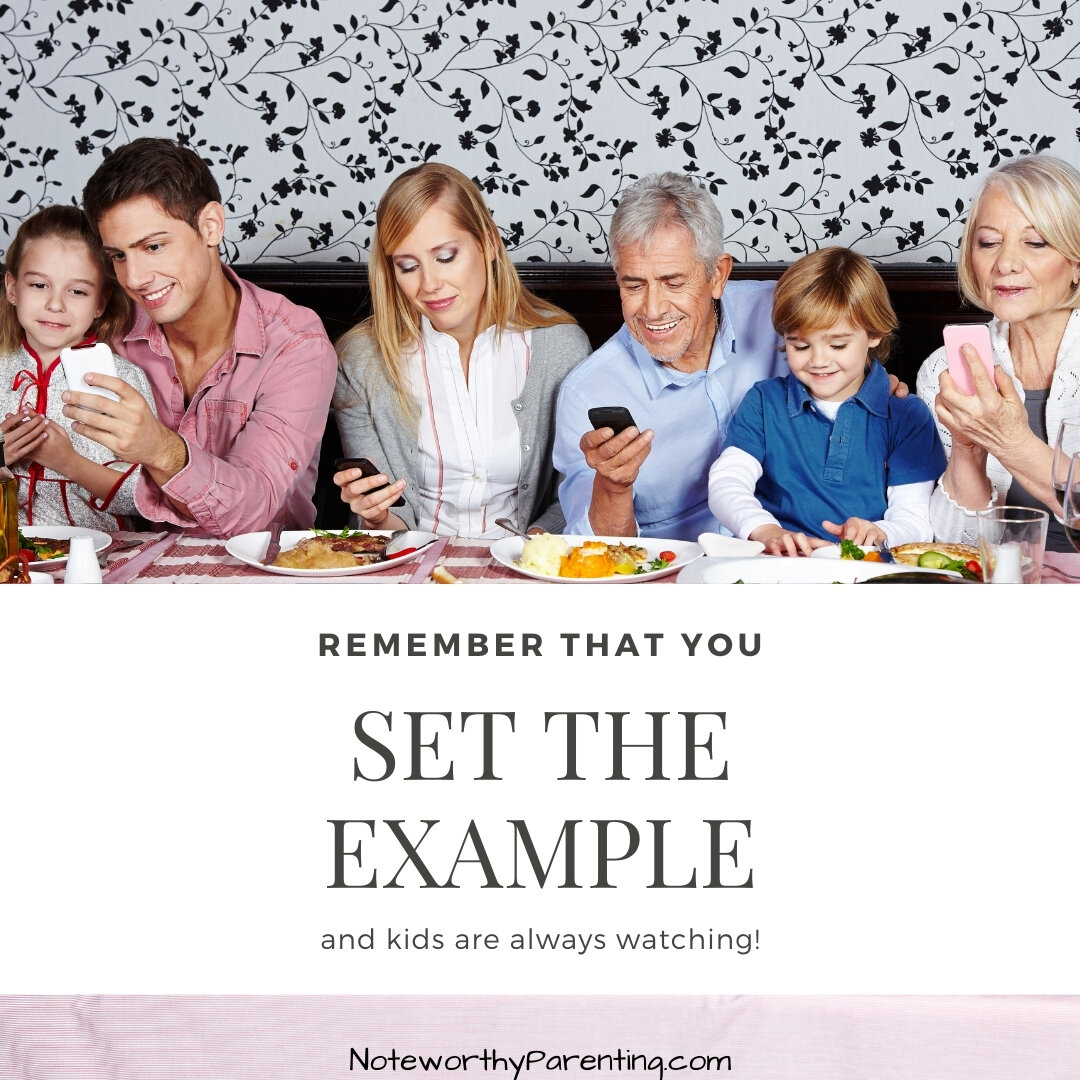

Nobody is perfect, but it is helpful to look at ourselves and be mindful of the example we are setting.
If we do lose our cool or forget, remember we are human, and that is a good lesson to talk with the kids about. Apologize if necessary, and move on!
Fun and Creative Ways to Teach and Reinforce Manners
Reading books and discussing the characters and the choices they make is a great way to mentor kids about manners and gratitude. Reading encourages bonding with your kids and builds trust. Here are a variety of added tips to make your time more engaging and full of learning for all ages…
Read the pictures first. Have the kids read to you about what they are noticing in the pictures.
Read to your kids, but stop at a part where characters are having struggles or maybe made the wrong choice. Ask your kids what they would choose to do or how they would do things differently.
Ask your teen for book recommendations. Read the book along with them or after. Start a conversation about the characters in the story.
Share articles you find with kids at age-appropriate levels and ask for their ideas and critiques about the topic.
Here are some of my favorite general books for molding manners and character…
If Everybody Did by Jo Ann Stover is a great picture book to show what would happen if everybody made the wrong choices.
Dude, That’s Rude! (Get Some Manners) by Pamela Espeland and Elizabeth Verdick. This humorous book is great for elementary kids and has several manners topics to dive into!
A Kids’ Guide to Manners: 50 Fun Etiquette Lessons for Kids and their Families by Katherine Flannery. A great overall family reference guide!
Aliki has great books for mentoring and talking with kids about behaviors with great pictures. Here are a few of my favorites…



Nothing can encourage kids to throw their very best manners out the window like competition. Everybody wants the thrill of victory and everybody struggles with the agony of defeat.
As busy parents, we often miss out on the best opportunity to mentor our kids in this area.
We head out to the soccer game, double-checking that the kids have all of their gear and that we remembered the snack.
We help the kids unwrap a new board game and help them get set up to play.
The best opportunity to get kids to think about winning, losing, and how to deal with those emotions is before the soccer game begins and before the first roll of the dice as the new board game begins.
Create a short plan or talk ahead of time as a parenting team.
Kids should feel encouraged to do their best and cooperate as a teammate. What can they learn from winning as well as losing? How can that knowledge help them improve for the next time? What goals can they set?
I recommend using the same talk, or keywords as you approach any competitive situation with your kids.
It gives kids the opportunity to think ahead about how they may feel and treat others in a winning or losing situation. Give them strategies to handle those big emotions, because after the game is when the big emotions show up, and that can be the worst time to talk or lecture kids as their emotions have got the best of them.
Then go and enjoy the soccer game, or play that new board game with them and help them practice being winners and losers!
As kids mature and learn to deal with the emotions of competition, they will need less or no more reminders.
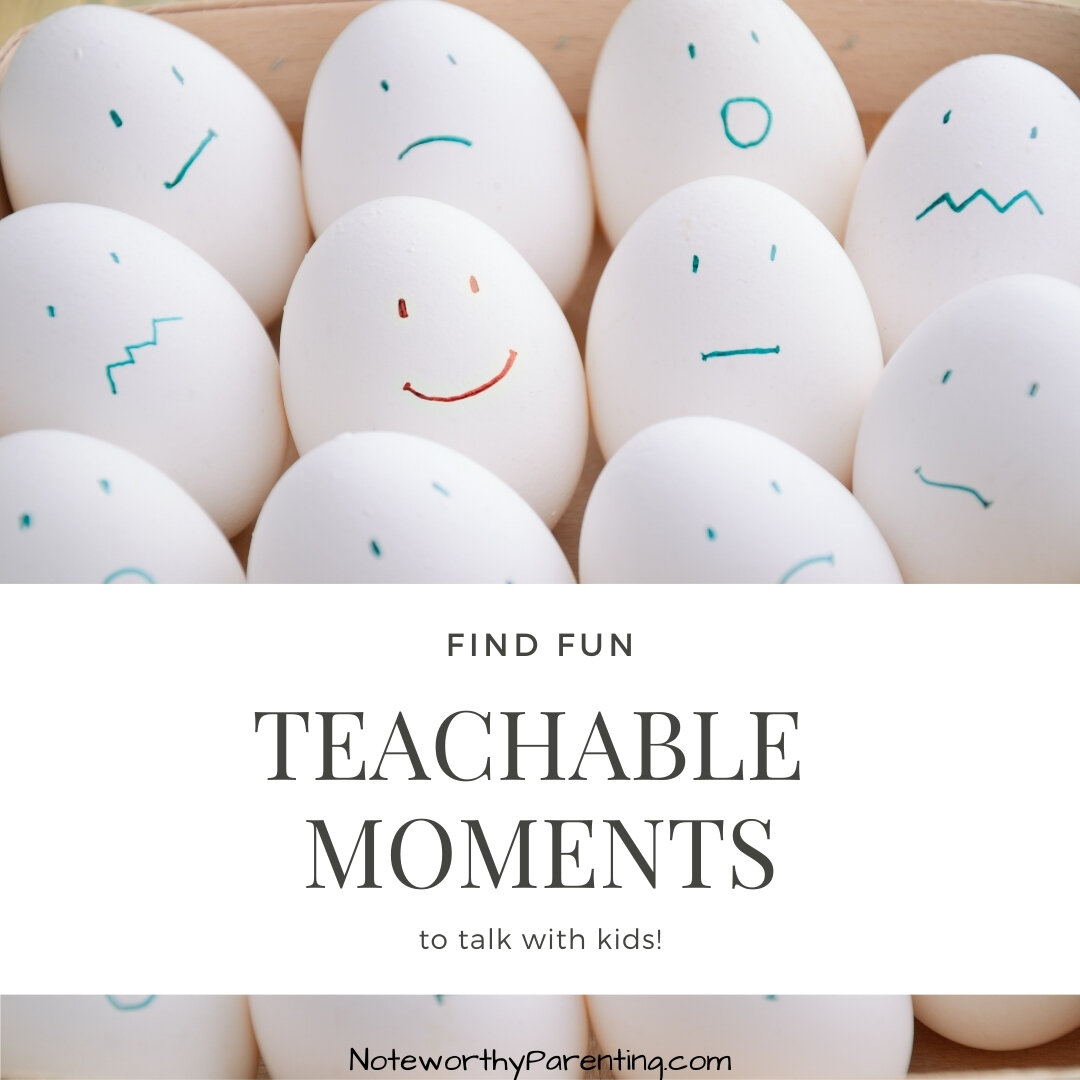
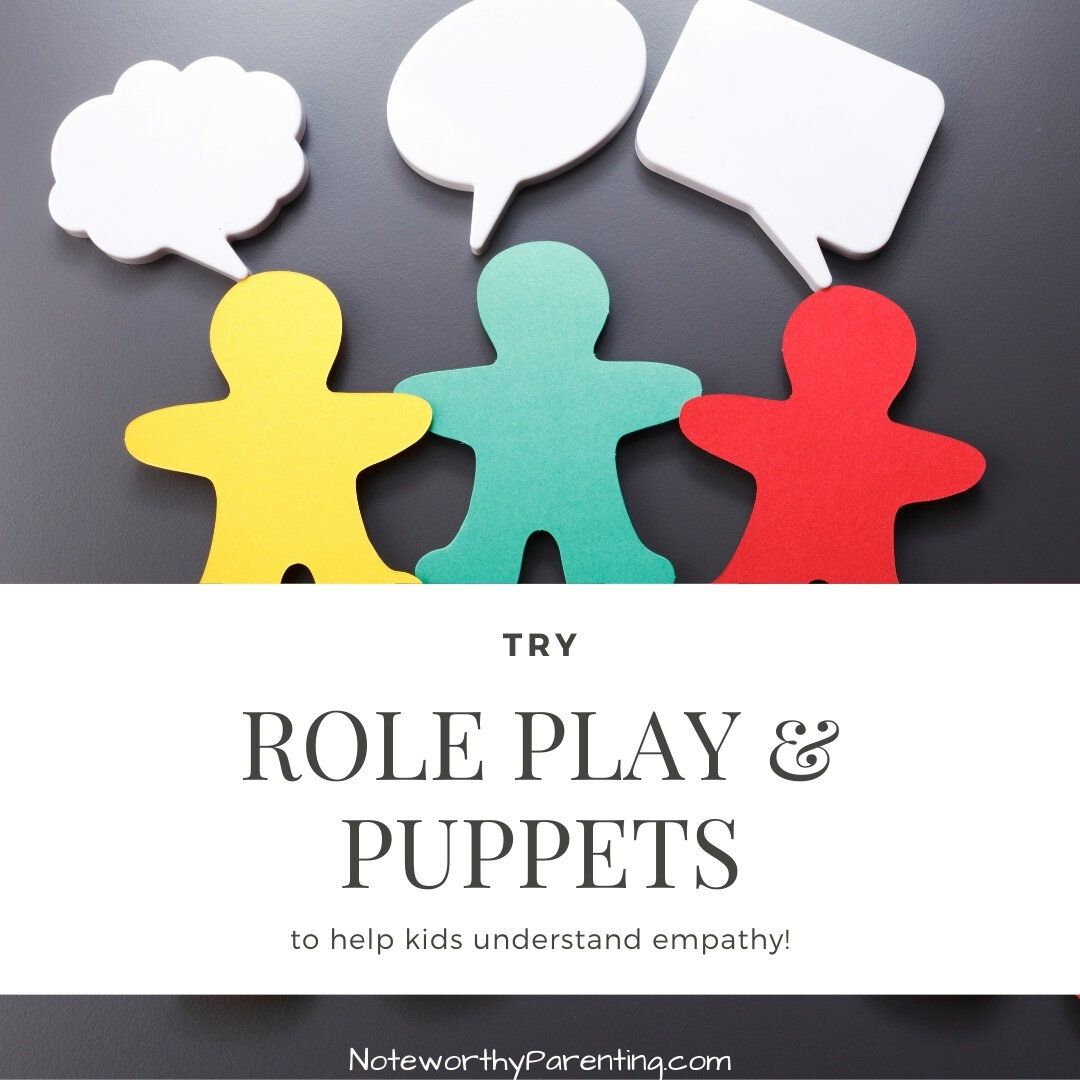
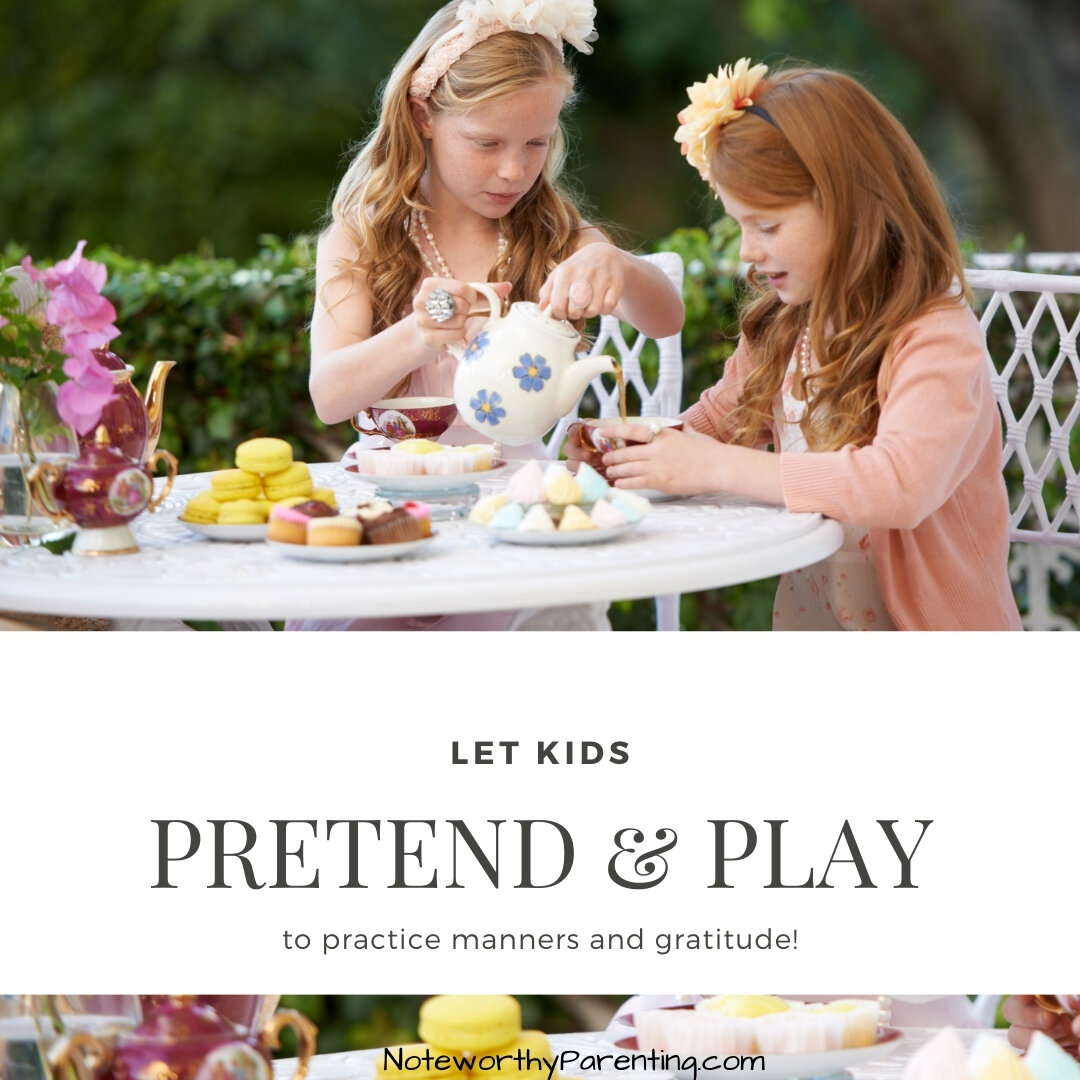
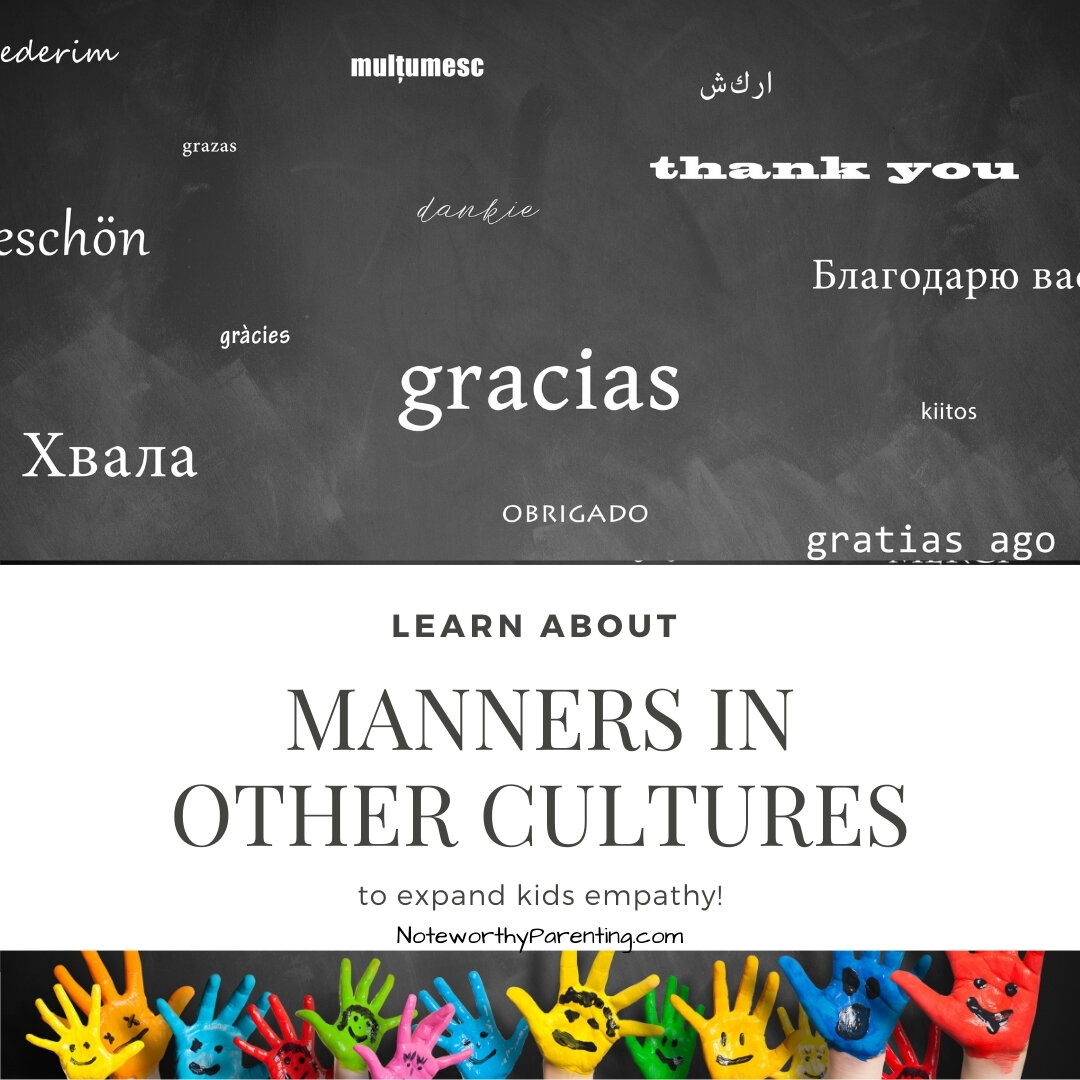
Have fun with your kids as you coach them with their manners and social interactions!
Use teachable moments around the house.
Why do we say excuse me when we pass somebody in a tight section of the kitchen? So they realize we are behind them, and they won’t drop the carton of eggs they are holding!
Use some puppets or stuffed animals to role-play some situations with your kids. Try scenarios that are similar to manners the kids are struggling with.
Imaginative play gives a lot of opportunities for kids to practice getting along and taking turns.
Look up etiquette norms from other countries. What is the same? What is different? Learn to say please and thank you in other languages!

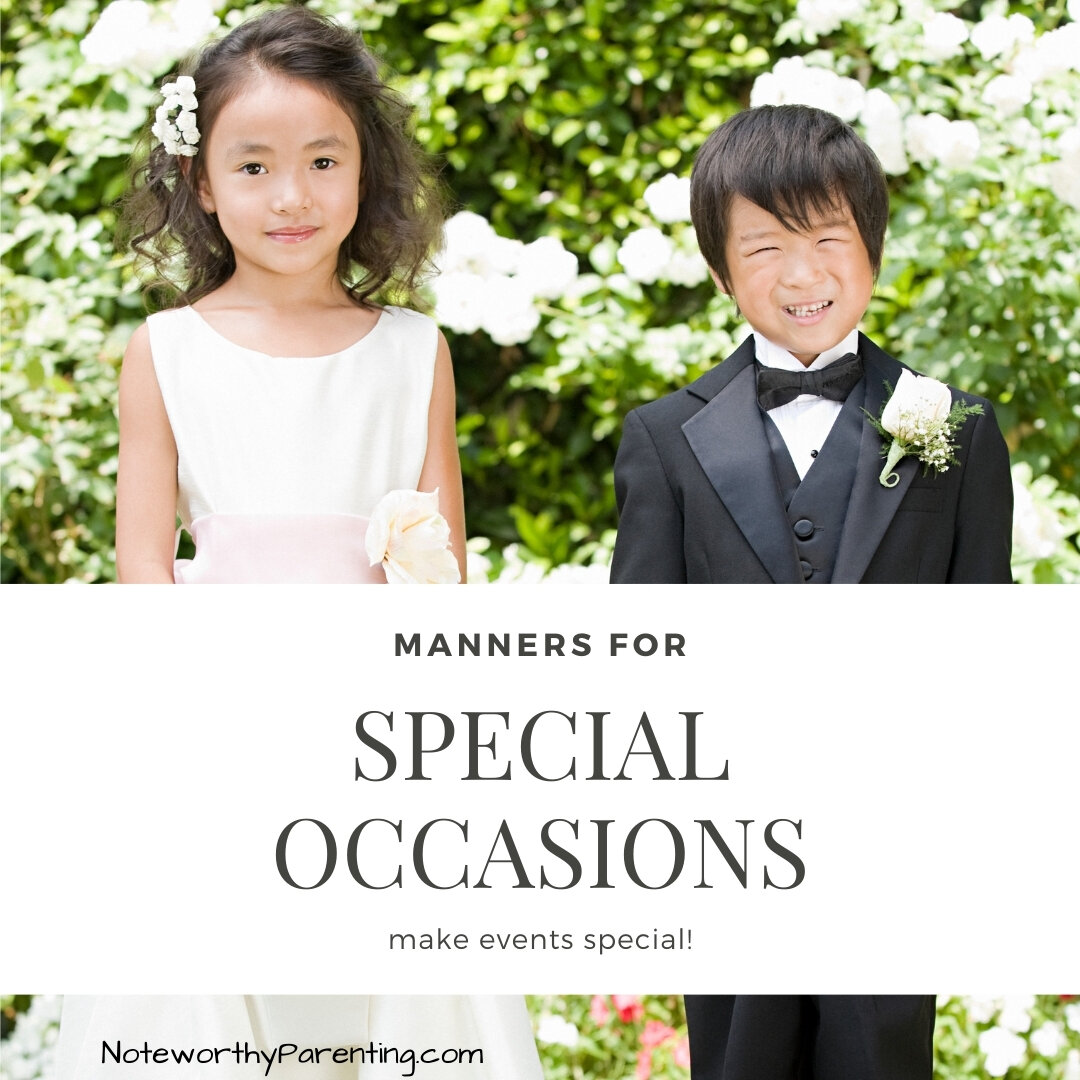
Manners often have specific rules or guidelines, such as setting a table in a certain way or behaviors at special events such as weddings.
Explaining these special systems ahead of time can give your kids a head start toward success!
What should their behavior look like at a wedding reception vs a birthday party for their friends? Is there running and giggling aloud?
For teens and young adults, weddings may be a good mentoring opportunity to discuss what an open bar is and what is the appropriate level of alcohol to consume as an adult.
How about teaching kids why we set a table a certain way and how to do it?
Emily’s Post is a great website resource for all the etiquette questions you have!
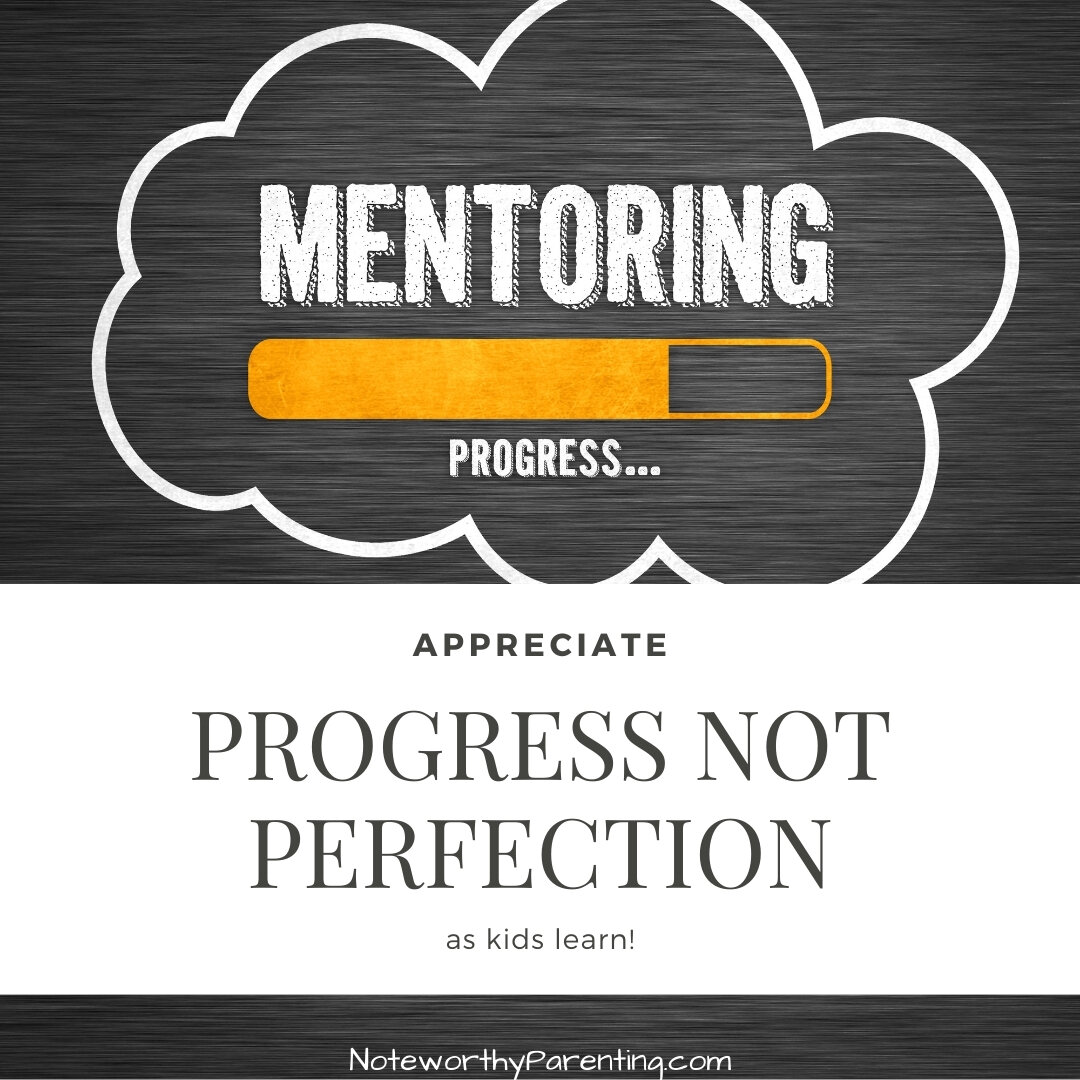
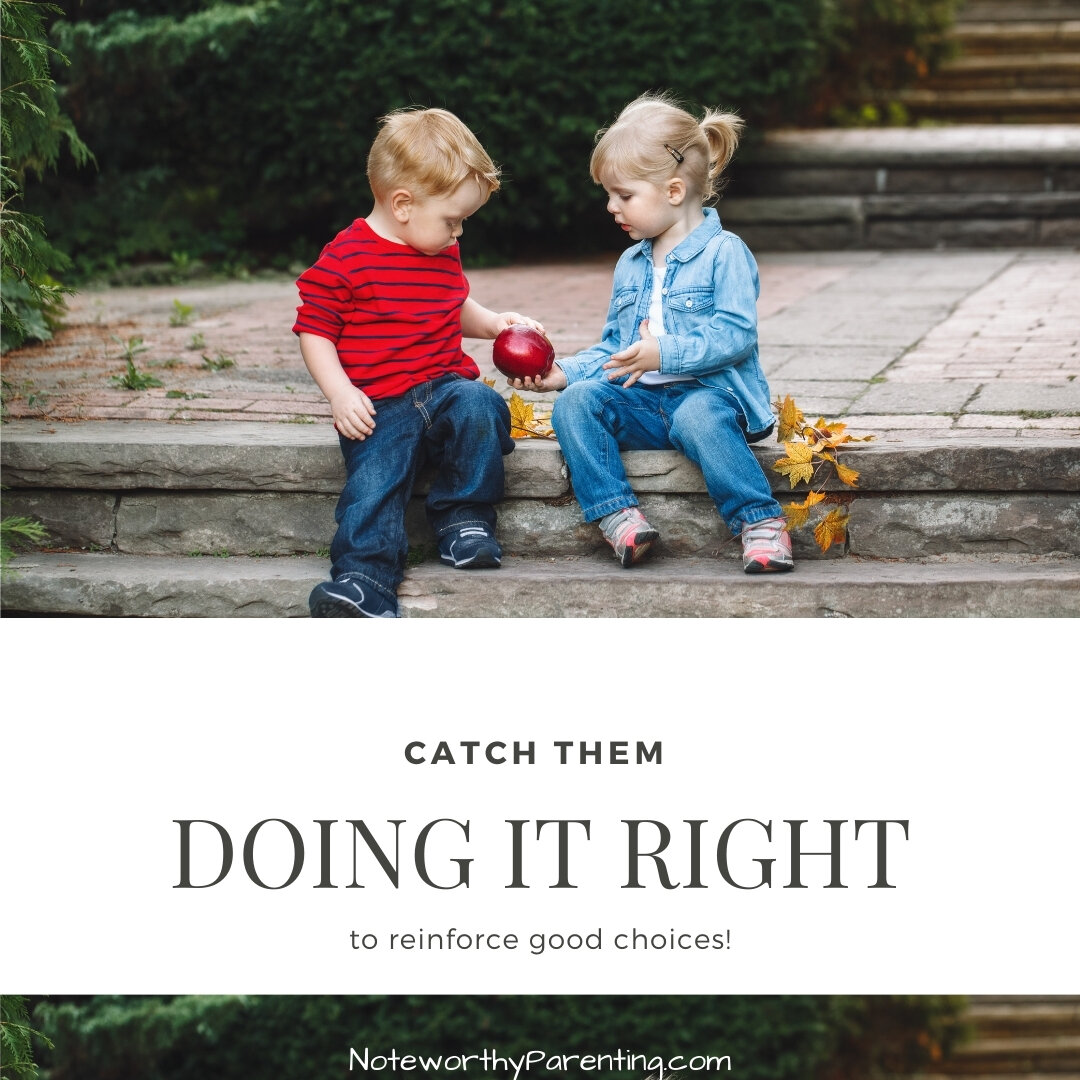
Mentoring kids takes patience and stamina! Consider it a work in progress. As kids master one task, there will be the next task to begin.
Catch them doing it right! Let them know you noticed their good manners.
How do they feel about their success? Was it easy? Was it hard? How did it help others?
A Gratitude Attitude Helps Kids Learn Manners
Why is it that the negative, selfish things in life seem to capture our thoughts quicker than the positive, empathetic things?
I don’t have the answer to this, but the antidote is to be mindful and develop a habit of seeking the things we are grateful for.
Helping kids cultivate a sense of gratitude helps them to become more mindful of their…
choices
manners
attitude
empathy for others.
Realizing we have enough is difficult for adults and kids. People always seem to seek more…
winning
luxury
goods and services
popularity
power
the list is endless!
How can we model having enough for our kids in the way we shop, donate, and take care of the things we already have? Talk out loud with kids as you…
choose not to buy a new TV because the one you have, while smaller, is still working fine.
choose to donate clothes and dishes you no longer use so somebody else can use them.
choose to write a thank you note to a friend for a gift or their support.
choose to maintain and repair appliances instead of replacing them.
As you are talking out loud about how we can appreciate things we already have, you can ask the kids how they appreciate what they have.
Here are more ways you can infuse gratitude into your family life…
Have each family member grab a few M&M’s or Skittles out of a bag. They say something they are grateful for depending on the color they select. For example, if you use M&Ms, use these categories…
Red: Who are you grateful for, and why?
Orange: What are you grateful for, and why?
Yellow: What place are you grateful for, and why?
Green: Why is gratitude important to you?
Blue: How do you share gratitude with others?
Brown: Wild! You can share anything you want to about gratitude!
Do a 5-minute gratitude meditation before bed as a family. Quietly think of what you were grateful for from the day.
Leave a gratitude notebook on a coffee table. Family members and guests can add pictures, stories, or words of what they are grateful for on the pages.
Start individual gratitude journals.
Keep colorful sticky notes around the house to write notes of thanks and appreciation to other family members and stick them around the house.
Make small crafts to leave on the doorstep of friends and neighbors. Let them know why you appreciate them!
Make several thank you note cards out of construction paper so you will have a stack to pull from when you need one!

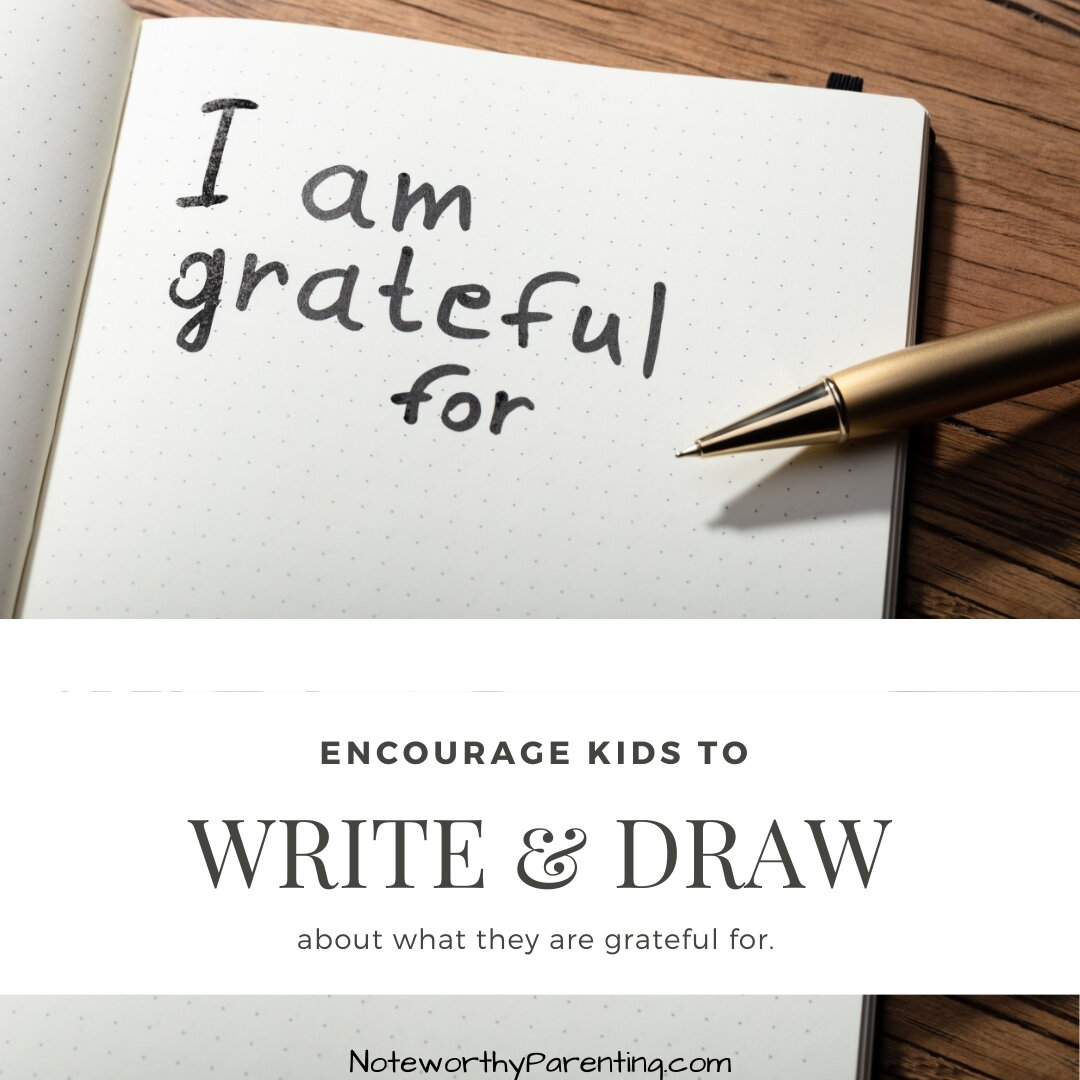


I hope you found some fun ways to make a plan for mentoring your kids with manners and gratitude!
Teaching the value and deeper needs of manners and gratitude may very well be the most important life skills your kids walk away with!
Help out other parents you know and share this with them! They may put you in their gratitude journal today!
For more Parenting Inspiration, check out these other posts…
Don’t Leave Your Family Safety Net To Chance
Build Your Parenting Smartphone Plan
Create a Kid-Friendly Happy Hour
Parenting Summer Break: Family Vacation @ Home
Parenting is not about PERFECTION!
It’s about the POWER in your PLAN!
Think it! Note it! Parent it!
Ready to start your own unique parenting plan?
Click the photo below and BEGIN!




